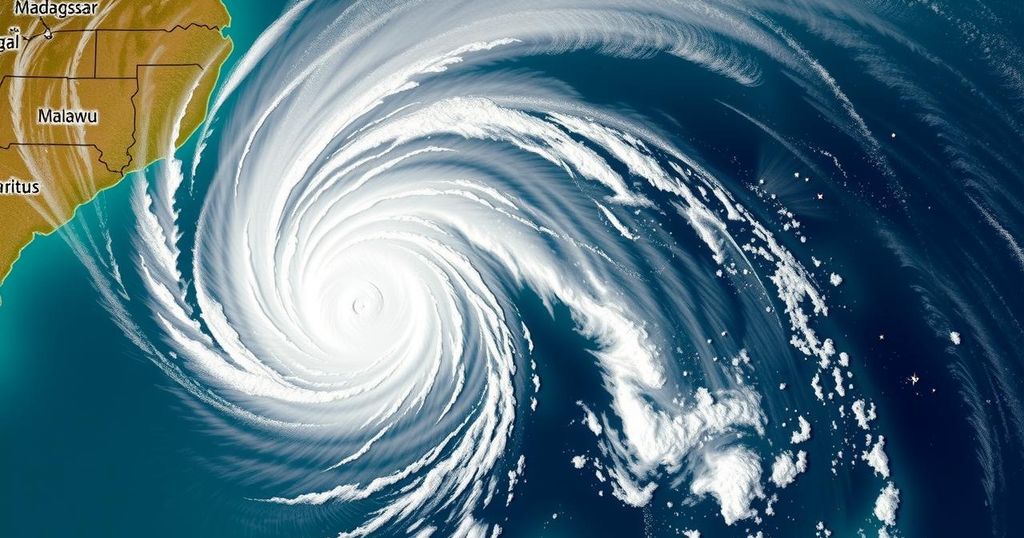The Impact of Cyclone Chido on Southern Africa: Preparedness and Response

Tropical Cyclone Chido is projected to affect around 2.7 million people in Southern Africa, particularly in the Comoros, Madagascar, Malawi, Mauritius, and Mozambique before landfall. The cyclone has fluctuated in intensity but remains a significant threat, prompting emergency preparedness measures and response initiatives in affected regions. Heavy rains and strong winds are anticipated to exacerbate challenges faced by local communities.
Tropical Cyclone Chido is anticipated to impact approximately 2.7 million individuals across six countries in Southern Africa, notably the Comoros, Madagascar, Malawi, Mauritius, and Mozambique, where it is expected to make landfall. The cyclone, having reached Category 4 intensity but weakening to Category 3, is progressing westward and is projected to intensify again as it approaches Mozambique. Heavy rainfall and strong winds are forecast, which could lead to significant flooding and damage, necessitating urgent preparedness efforts, including evacuations and supply repositioning in the affected regions. Allied nations, including Zimbabwe, Zambia, and others, are also set to experience heavy rains as a result of this weather system.
The UN Office for the Coordination of Humanitarian Affairs (OCHA) has initiated readiness protocols, advising local communities on preparedness and potential evacuation measures. In Madagascar, food stocks have been deployed in threatened areas to mitigate food insecurity following the storm. The Comorian Red Cross is mobilizing resources, while Mozambique’s National Institute for Disaster Management (INGD) is coordinating an emergency response plan, including prepositioning stocks and establishing accommodation centers for affected individuals. Malawi’s government is also taking proactive measures to ensure public safety through evacuation advisories and the establishment of emergency operations centers.
Tropical Cyclone Chido originated in the southeast Indian Ocean as a tropical depression and was upgraded to a tropical cyclone, posing threats to several Southern African countries. Approximately 2.7 million people are predicted to face adverse effects from the cyclone as it progresses toward Mozambique after impacting Madagascar, the Comoros, and Malawi, among others. The severity of the cyclone parallels previous weather events that have caused significant damage in the region, necessitating coordinated emergency responses and preparedness initiatives to safeguard lives and property.
In conclusion, Cyclone Chido poses a significant risk to Southern Africa, endangering millions and prompting urgent humanitarian responses across several nations. Governments and humanitarian organizations are mobilizing resources and preparing communities for the potential impacts of strong winds and heavy rainfall. Continuous monitoring and support are essential to mitigate the effects of this natural disaster and ensure the safety and well-being of affected populations.
Original Source: allafrica.com






